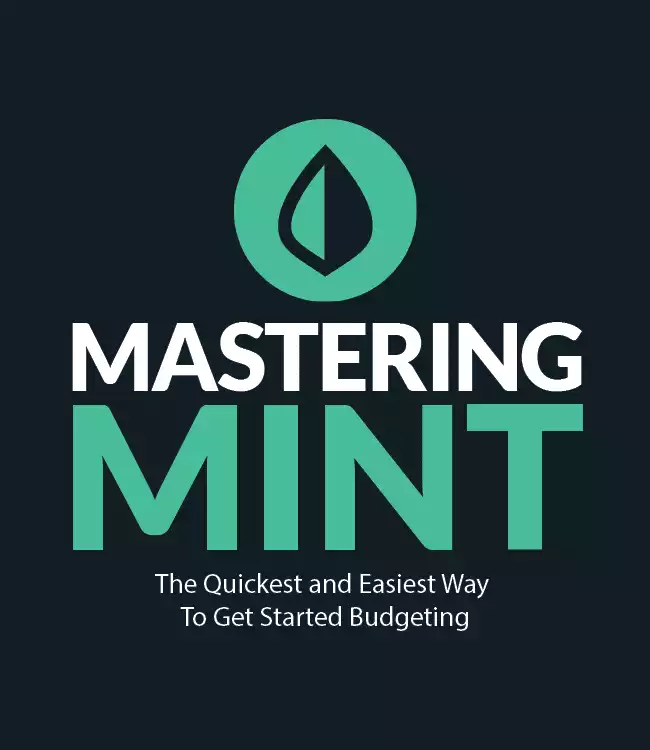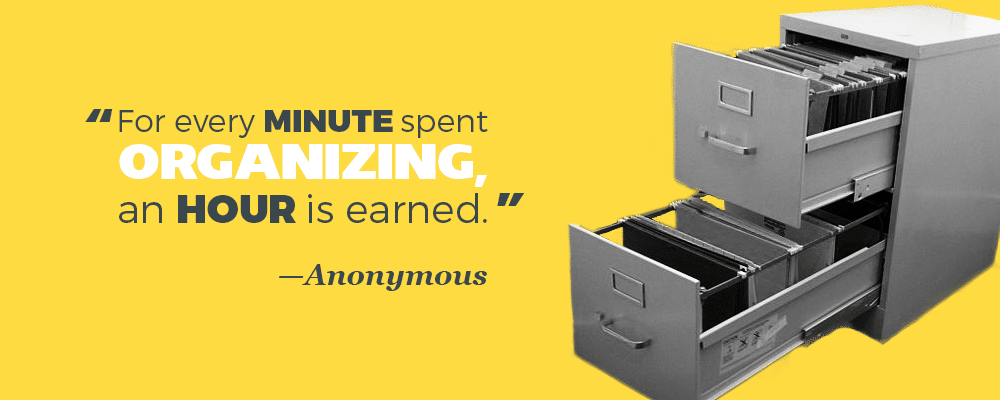When you Google “How to Start a Blog,” all of the results are identical and generally pretty terrible. They only show you the five baby steps to getting started. Five years ago, I wanted someone to give me the actual answers. This is me hailing from the future to give you exactly that. I call it internet justice.
It all started when I was on a plane flying back from San Francisco. I wanted to make that big tech money everyone brags about but San Francisco wasn’t for me and my life aspirations weren’t to be a cog in someone else’s widget-building, billion-dollar machine.
I had this crazy idea – the work I do should fuel my own business machine and not someone else’s. If someone was willing to pay me $100,000 a year to do something in their business than I must be worth more than that to them, or it wouldn’t make sense to hire me. I wanted to capture my full value not sell it to the highest bidder.
You’ve been dreaming about a Lifestyle Business
Everyone talks about unicorns because they’re abnormal and awesome but nobody talks about the Lifestyle Business. It’s actually actively shunned in the tech community because if you aren’t earning billions than you must be a loser. Well, guess what, after five years of part-time effort building Listen Money Matters, it now earns far more a year passively than I ever could in a salaried job with zero debt. Plus, I’m the boss.
I’ll share my story and the lessons I learned but more importantly, I’m going to spell out the exact steps I took to get here. Since this is going to be a beast of a creation I figured a high-level overview was in order. I highly recommend you read this top-down and use the overview below or our table of contents to skip around later. Hidden in obvious steps are some not so obvious solutions (at least to me originally). As they say, the devil is in the details.
- How to Start a Blog (Step-by-Step Guide) – Everything you need to get started in under 10 minutes with $160. The act of paying someone to host a blog for you is easy.
- How to monetize your Blog – The only two ways that matter and the one you should avoid at all costs.
- Your Creation Strategy – Make what people are actually looking for. Also, 80% of SEO is bullshit. I am not special, the internet is filled with people doing exactly what I do. The difference is, I’m just going to tell you for free.
- A Blog’s Growth Trajectory – What you should expect in years 1, 2, 3, 4, and 5. It’s all about appropriate expectations because slow and steady wins the race. Going viral is bullshit. Winning online isn’t about being the fastest, it’s being the one left after everyone else gave up.
- How You Will Fail – It’s going to happen, and it’s going to happen a lot. Learn about the “Equal-Odds Rule” and how it applies to every success you’ve ever seen. For me, my failures have been far more instructive than what I’ve actually done right.
- TLDR; Takeaways – Have the attention span of a goldfish? Just want the nuggets for creating a successful blog? I’ve got you covered.
- FAQs – When you get enough questions, enough times it’s just easier to write the answers once. If you already have questions, maybe start here. You asked me one of these questions in an email I probably linked you.
How to Start a Blog (Step-by-Step Guide)
Thankfully this is the easiest and quickest part of the whole process because it’s been optimized to the hilt. That said, it’s also the easiest part to get wrong.
I say that because part of the human condition that’s been taken advantaged of since the beginning of time is our need to buy away our problems with magical easy solutions.
The multi-billion dollar self-help industry is built on this and you don’t need to look far on the internet to find plenty of examples that the sharks of self-help are alive and well. If you’re willing to pay $97 for all of the solutions to your life, you better believe there are 100 people out there willing to sell it to you.
So, what do we need? Simply put, a hosting provider and a domain name.
The first is important so that people can see what you’re building. The second is important because, without it, nobody will take your business seriously. You know the last time I clicked on a mysuperclevername.blogspot.com URL? Never. If you want to build a business that in 5 years lets you retire, don’t start with a shit sandwich.
Step 1. Picking a Topic or Niche
The sad truth is this is where most people get stuck. No idea is revolutionary enough for them. I get it, with websites like Buzzfeed how can you even compete in gif-list-making anymore, amirite?
All sarcasm aside, it actually took me a while to decide on what to blog about as well. Travel and Productivity are passions of mine. But how could I create a Travel site, aren’t there already eleventy billion of them on the internet? Yes, there are, but it doesn’t matter.
I was too stupid to do any research in the money/personal finance niche to know that it was mindbogglingly saturated with websites. Now that I’m in the space it literally feels like everyone in the world has a personal finance website. Lucky for me, most of the websites are terrible or given up on before they even get found.
It turns out that topic selection doesn’t matter because of this annoying word called Tribes. Tribes are a group of people who think similarly and like similar things. A tribe could be 30-year old men who are obsessed with Star Wars or 14-year old girls who never stop watching Frozen. When you create a blog around whatever it is that interests you, you will inherently attract people like you. People from your Tribe. That’s it, the secret to success.
Do you think people read The New York Times because they hate their viewpoint? How about Fox and Friends? No, people read and watch what they already like and agree with. So, your job is to find people in your Tribe, your topic is more a factor of what interests you.
In fact, I’d go so far as to say that you should create a money, travel or fashion website because they are so prolific. It shows how many people are interested in those topics so you can probably build an audience and business around them. Most of our biggest fans also read/consume creations from other personal finance brands and that’s OK.
If you like Extreme Ironing, that’s cool and all but there probably isn’t enough worldwide interest to build a business around it. Your Grandma was right, you shoulda stuck to Competitive Dog Grooming.
Step 2. Picking a Hosting Provider
Honestly, I could probably write 5,000 words on why spending any meaningful time breaking down your choices for a hosting plan is a complete waste of time. They are all largely the same, trust me. I’ve tried enough services and wasted plenty of money. You also get what you pay for, except when you overpay because then you just have too much money.
Since you are starting out, nobody will be visiting your site. Sorry but that’s the truth for 99.99% of all new bloggers for the first few months. You’re also not going to go viral and even if you do, it won’t make any meaningful difference to your business for reasons I’ll explain in the A Blog’s Growth Trajectory section.
That means we’re going to optimize for cost and efficiency. If you take my advice in the “Don’t Quit Your Day Job” section than the absolute most important thing to optimize for is saving you time.
When it comes to finding the highest quality host for the lowest price, HostGator wins hands down. Depending on the day, it's between $2.75 and $3.95/month for the tier you need.
They also have a metric ton of influencers who will hold HostGator’s feet to the fire (me included) if they suck for one of their fans.
There’s a ton of writing on the internet about alternatives like Bluehost. Guess what, the company that owns HostGator also owns Bluehost. In fact, at the time of writing, they own 84 web hosting companies:
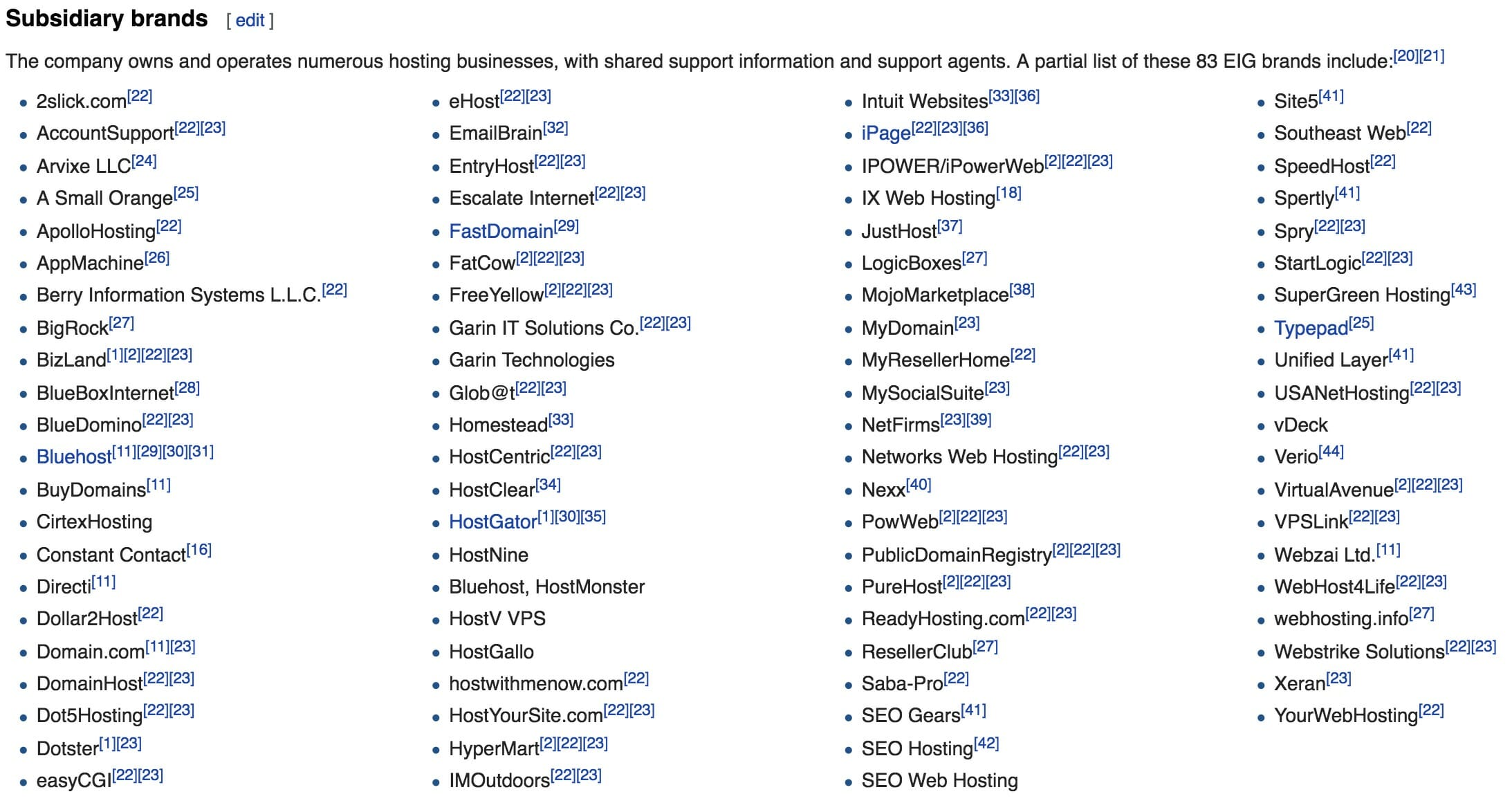
Getting into why one $3.95/month service is different from another owned by the same conglomerate is an exercise in futility. Anyone who attempts this is probably a master bullshit artist.
On that list of 84 near-identical hosting providers, I say you choose HostGator because it sounds, cool and the logo is damn cool. You could always pick Bluehost if you want everyone to know how basic you are.
If you signup for one year with HostGator, plus a domain name, it will run you a little less than $160. And, if you’re the kind of person who doesn’t give up on their dream in two months you should probably sign up for two years and take whatever psycho-deal they offer.
In the first year, or so of building your business, hosting will be like 90% of your cost.
Considering how cheap it is, just rip off the band-aid and let’s move on. Hosting accounts don’t matter in the beginning!
Now, I really don’t want to spend any more time discussing hosting but I do think it’s important to mention the WordPress hosting provider we use, WP Engine.
We host ListenMoneyMatters.com with WP Engine. They are the best WordPress managed-hosting service that we've found. And we've tried a lot of em. Nothing beats the power and ease of use of their admin tools.
I’ve tried every host there is to try and most have left me crying to my wife about how much my life sucks. WP Engine is the best we’ve found and every single one of our brands is hosted by them.
So, if you find yourself crying to your significant other a lot than just sign up for WP Engine. Start building already, no more excuses.
Step 3. Picking a Name
The domain name of this WordPress blog is listenmoneymatters.com and, in my infinite wisdom, the full web address even contains the www and an https making it https://www.listenmoneymatters.com.
Typing this URL out so often is slowly giving me carpal tunnel. I wish I thought of something more clever and shorter when I started, like Money Predator (also my site) or something. Whatever.
The point is, I was able to build a brand that touches nearly 1,700,000 unique people a month according to Cloudflare. But, don’t take my word for it:
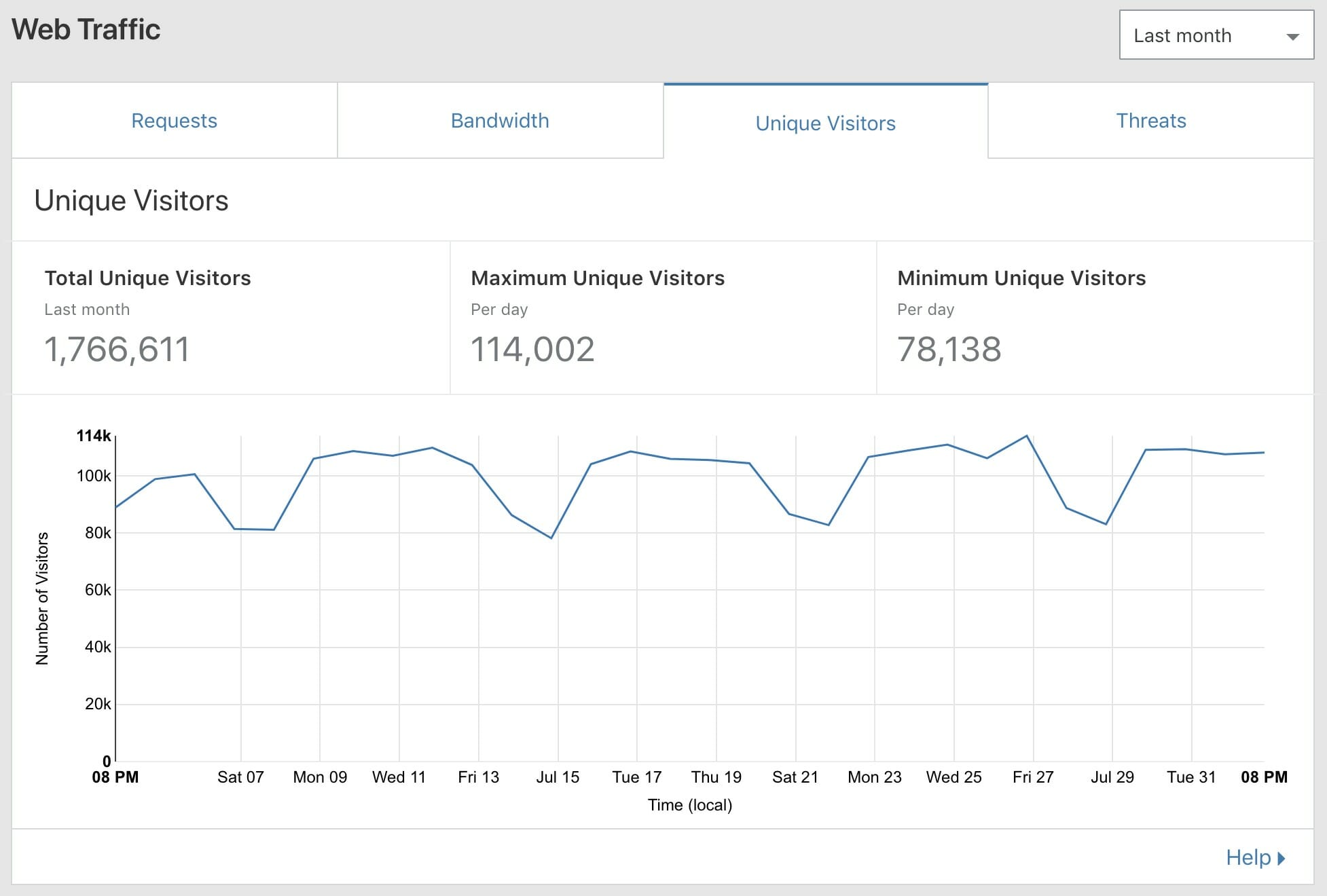
Almost all of our traffic comes from Google so nobody is actually typing our URL in, they’re just glancing at it in the search results before they click. Think about how much you cared about my domain before you clicked. Your visitors will probably care even less.
All you need to do for your own domain name is pick something that people can say and remember for when you eventually convert these random visitors into super-fans. HotCrossBunsForCash.net? Sure. ListenFatIncinerationMatters.org? Grab it while it’s hot.
Step 4. Use WordPress and a Simple Theme
There are a ton of sites out there that will debate the more subtle nuances of WordPress. Another time trap. WordPress powers over 27% of the internet which makes it the #1 CMS platform by a long shot. I honestly think it’s enough to just trust the vast majority of internet creators with their selection of WordPress. That said, there is one reason that matters so much that you need to read it.
WordPress has by far the most support on the internet. So many writers use it, developers create plugins for it, and designers create themes for it that the possibilities here are worlds ahead of walled garden sites like Squarespace or Wix.
And, if you decide that you want to get locked into a platform, after all, WordPress will let you transfer your site because it’s open-source and high class. The other guys need to keep you in one spot. Friends don’t let friends get locked in.
Another big blocker to get started is the WordPress theme. Everyone wants their website design to define them as a person, tickle their visitors in just the right way, and make their mother weep with how proud she is.
Guess what, your blog design doesn’t matter – especially not when your only visitors are your mom and your cat.
Use a free theme, a WordPress default, or pick one of the 10,000+ cheap ones on Themeforest. Don’t spend too much time worrying about how your blog looks in the beginning. Over the course of the next 5 years, you can find something better. Getting stuck picking a theme is a trap and a waste of your time when you’re just starting out.
Step 5. Monetize it with Lasso
Regardless of the business model you choose, you’re going to need to track your links—especially your monetized ones. Being able to shift your links to your best-performing affiliates is a cheat code that we’ve been using for some time at Listen Money Matters.
Recently we decided to package up that automation and sell it – it’s called Lasso.
We built this to monetize Listen Money Matters and now we're sharing it with you. If you want to make money online, you need this tool. It's the best plugin you'll ever use, if we do say so ourselves.
That display box you just saw is from Lasso. This entire website is monetized with it. As Peter Drucker famously said, “what gets measured, gets managed.”
Matt recorded an awesome video on how to use Lasso – you should watch it.
Further Reading:
So, not really a step but it’s really important to be successful. I don’t know who popularized this but I remember first learning about it from Tim Ferriss in The 4-Hour Work Week and it was like a smack in the face.
Just in Time Learning is exactly what you think it would be, learning (and doing) everything at the right time and not researching things that apply to you far down the road. It’s by far the most efficient way of getting things done and ironically the hardest to stick to.
The best part of this post has yet to come but we’re trying to build a business here so let’s focus on action. Go and take a shower and think of your domain name. Then, go sign up for hosting, use a default WordPress theme (or buy a cheap one) and come back here.
The whole process should take you less than 2 hours and that’s only if you need to listen to an entire episode of our podcast in the shower. Our surveys show that the only place more popular than listening to our podcast in the shower is during sex. As it turns out, investing your way to a million dollars is great for your sex life.
But, back to the topic at hand. I could have probably built this brand in three years if I had focused more on doing and less on pie-in-the-sky planning. At least try and start that way, future-you will thank you.
This is our guide to budgeting simply and effectively. We walk you through exactly how to use Mint, what your budget should be, and how to monitor your spending automatically.
How to monetize Your Blog
Ok, this is by far my favorite part. Once I figured out the “secret” (it’s not a secret) I became really good at it and I often find myself coaching others on what to do. The thing is, it’s actually really simple but in practice, it requires you to be a little clever and tenacious like woah.
I’m going to extremely oversimplify things here to again, save us all some time. You certainly can Google “How to Monetize a Blog” and discover a ton of shitty lists enumerating all of the inane monetizing methods.
Some of them will even suggest super cool things like “Host A Webinar” because everyone on the internet wants to either join a webinar, host one, or sell webinar software. Amirite?
Ok, yeah, I think we all agree that webinars are the worst invention ever.
There are two ways you’re going to want to monetize your site:
- Affiliate marketing (worst name ever)
- Sell Something
It’s all so obvious yet not so. In this section, I’m going to break them down for you, explain how to do it (roughly) and even tell you one area you should avoid at all costs. I promise it will have nothing to do with weight-loss supplements or muscle-ups – two more things I think are the worst.
What is affiliate marketing?
Simply put, affiliate marketing is when you get paid to send an existing business a customer. However, in order for you to get paid, this customer must convert into an actual sale. This means they’ll either sign up, buy, click, or whatever the business you’re an affiliate for defines as a conversion.
Now, if you’re in the affiliate marketing business then you smelled how this article was monetized from the moment you visited it.
If you signup for HostGator (or Bluehost or WP Engine) I make money.
Buy Tim Ferriss’ book? I make money.
Order new socks from Target? I make money.
But Andrew, what if I want to get my new website logo designed by 99 Designs? Surprise! I make money!
As it turns out, just about everything on the internet has an affiliate program. It’s so prolific that I honestly couldn’t imagine a single area of interest that doesn’t have a metric ton of affiliate choices. The biggest affiliate program on the internet is Amazon and they practically sell everything.
affiliate marketing is literally the most lucrative thing that you’ve never heard about because you know who needs customers? Every. Business. Ever.
On this blog, we talk about how to invest and other money things. A good friend of mine will teach you how to take care of your pool; another one helps students become super-students. What do all these sites have in common? affiliate marketing. Also, that we make sickening amounts of money from it and I don’t say that to make you jealous, it’s just a fact.
It’s the ultimate automated business. Create an article, earn money from it month after month after month.
What’s the catch?
By now you must be thinking one of three things:
- Wow, this all sounds so easy, what’s the catch?
- Yea, yea, I knew all of this already, what’s the catch?
- Not only are you not funny Andrew, but I’ve been waiting for the catch for three minutes and now I’m pissed. What’s the catch?
Well, let me get right to it. The catch is simple, you need to not suck and you need to hit scale. Before we get into the how, let me explain the closely guarded secret of the millions of people who make affiliate income.
Don’t suck. Smartness is measured on a bell curve like all other things. It looks something like this:
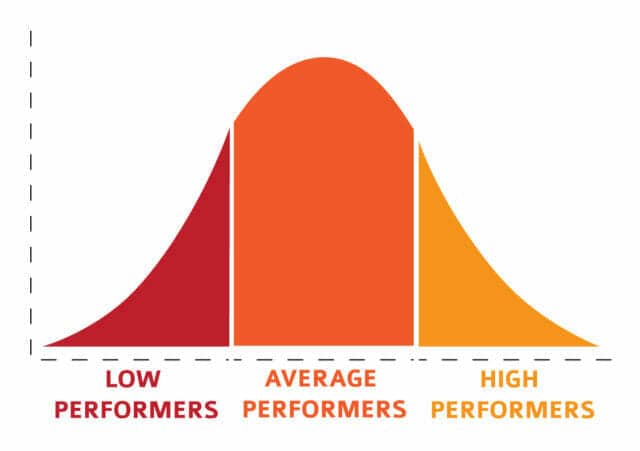
What this says is that over 68% of us are roughly about the same in terms of our capability and intelligence with only about 16% being either exceptionally awesome or exceptionally the opposite of that.
How does this apply to affiliate marketing? Simple. You’re not fooling anyone, or at least not more than the bottom 16% of your visitors.
If you suck or are a shill for a product the vast majority of people will see right through it and you’ll be ever so slowly blasted off the internet. That’s why Reddit was created, right?
Google certainly isn’t in the business of sending their visitors to shitty websites so if you’re a shitty website that is still in business, you’re probably going to go out of business very soon.
This means that #1 catch is you need to make things that are awesome such that if you printed it out your mom would hang it on her fridge and brag to all her friends about it.
In other unrelated news I’m literally printing this out for my mom right now – I’m also buying her a bigger fridge with that sweet sweet affiliate money because this article is insanely long.
Catch #2? You need to hit scale. What is scale? Thousands of people a day. If this site got one visitor a day and everyone signed up for
Problem is that only about 5% will sign up for
Now, if you can consistently create awesome stuff (we talk about this in the How You Will Fail section), you’ll do great. That just leaves the part where people lean you even exist and created awesome stuff.
That, unfortunately, will take quite some time but don’t worry we’ll cover that soon enough.
There is a silver lining to it all though but, first things first.
How do I Earn affiliate Income?
Ok, we’ve established that having affiliates for products you truly believe in can be insanely lucrative. Great, how do you do it? Let me break it down for you.
Start by searching “<product name or service> affiliate” in Google. There’s a very good chance that you’ll get some meaningful results or at least find a plethora of very close competitors to what you’re looking for. Need an example? Search “WP Engine affiliate”. Now proceed to spend 20 minutes trying to figure out how much this single post earns.
Something like 80%+ of any affiliate program you will care about will be found on FlexOffers, Commission Junction, Impact Radius, ClickBank, ShareASale, or the beast of the internet, Amazon Associates. So step #1 is to signup for some or all of these platforms (free) and start searching or browsing for things you can use in your creations.
I’m only 2/8ths through this article so I don’t even know what else I’ll monetize it with but I can promise you the result will net me a few thousand a month. This blog page earns me over $3k/month. I won’t blame you if you copy me, it’s the sincerest form of flattery.
Remember, this took me nearly five years of extreme stubbornness to pull off so if you’re stubborn as hell, you got this.
But how do I track it all?
We built this to monetize Listen Money Matters and now we're sharing it with you. If you want to make money online, you need this tool. It's the best plugin you'll ever use, if we do say so ourselves.
We track every monetized and unmonetized link on this site with Lasso. Afraid to spend money? Spend five minutes with the competition and you’ll see the value.
What do I Sell?
I love affiliate marketing but it’s not the only way to make money. Without people who actually sell things, there wouldn’t be any affiliate money to make.
So, what could you possibly sell?
This is the hardest, most contentious question in “make money online” internet subculture. You’ll find the most popular answer on most blogs but hold on, we’ll get there.
You could sell Rick and Morty themed welcome mats – you know, like make them yourself. That sounds cool, right?
The thing is, it doesn’t matter that much what you do because your first idea is probably going to fail. So will your second through fifth ideas. We’re human and the only way we learn is by starting out being the worst. Remember when you were a baby? You were the worst. It’s also what your hot date in high school thought of you – zing!
Everyone who’s found success without dumb luck has followed the Scientific Method. Mmm… Science.
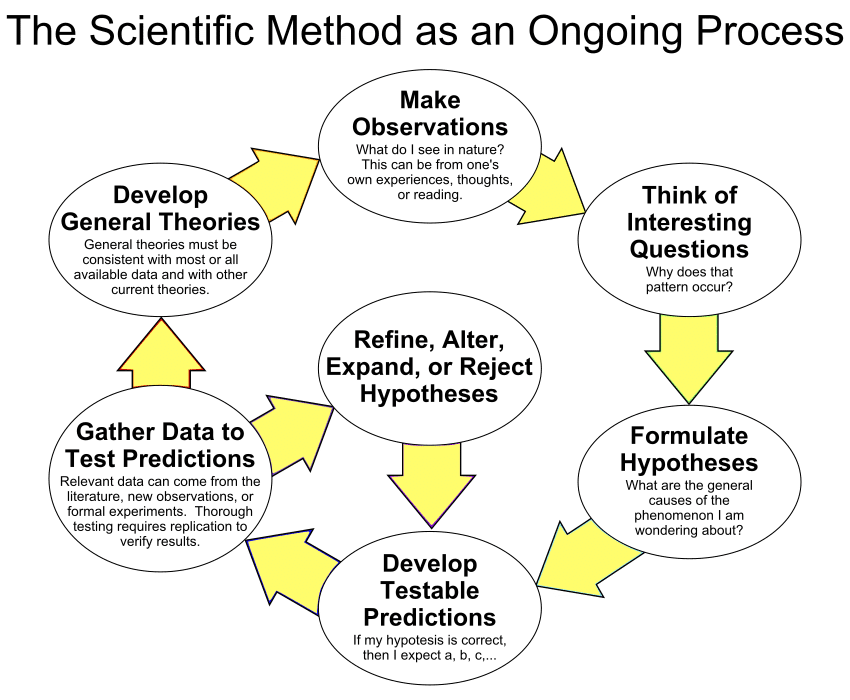
Building a business and selling things is an iterative process much like the picture above. The trick is to try to burn through your shitty ideas as quickly as possible so you can find your diamonds.
Everyone has diamonds. We’ve interviewed enough millionaires to know they’re not special. They’re just tenacious.
Why go through all the pain and angst to create something of your own to sell? Because it’s going to be a million times more profitable than any affiliate marketing program you could ever join in the long run. That’s why my “internet friends” and I spend most of our time trying to create successful products. Who do you think makes more money, the people who make the iPhone or the people who sell it? Ah-ha!
Since I’m not one to leave you hanging, here are some things people I know typically sell on their websites that involve little or no upfront cost:
- Ebooks – These are relatively easy, take a week off of work and you’ve got 10k words ready to sell.
- Online Courses – You can sell them on your own site and host with Wistia, host externally with Teachable or even add them to an existing platform like Skillshare. All very viable options. They are, of course, much harder to make then ebooks and they pair really well with all that email marketing you read about.
- Sponsored Posts – I know a lot of people who sell these and while they can be lucrative, it really dilutes your brand. I recommend you stay away from these.
- Email List Sponsorship – Emails get amazing engagement and some sites like my all-time favorite, Quartz, monetize their email lists with sponsors. They proved to me it’s possible to monetize an email list tastefully and I respect the shit out of them for it.
- Digital Products – Love WordPress? Sell a premium theme or a plugin. Obsessed with time tracking, make a time tracker for the Mac. Honestly, developers won’t have a hard time making money as long as they make something people actually want.
- Membership Site – Fizzle, a favorite community of mine, is a membership site. They teach you about online business, how to drive traffic to your site, how to make successful landing pages, earn with freelance writing, and a ton of other general blog monetization stuff. They’re an awesome resource and in my opinion, go much deeper than Pat Flynn does although he’s pretty great as well.
- Miscellaneous Information Product – People sell glorified PowerPoint presentations, phone calls, coaching services, and even private workshop getaways in exotic locations.
Avoid Ads at All Costs
Here is where you should pick up your laptop and slam it on the ground in anger. “Andrew, Facebook, and Google have made billion-dollar companies based on ads and half the internet earns money from them!”
All true. But you know what else is true? This graph:
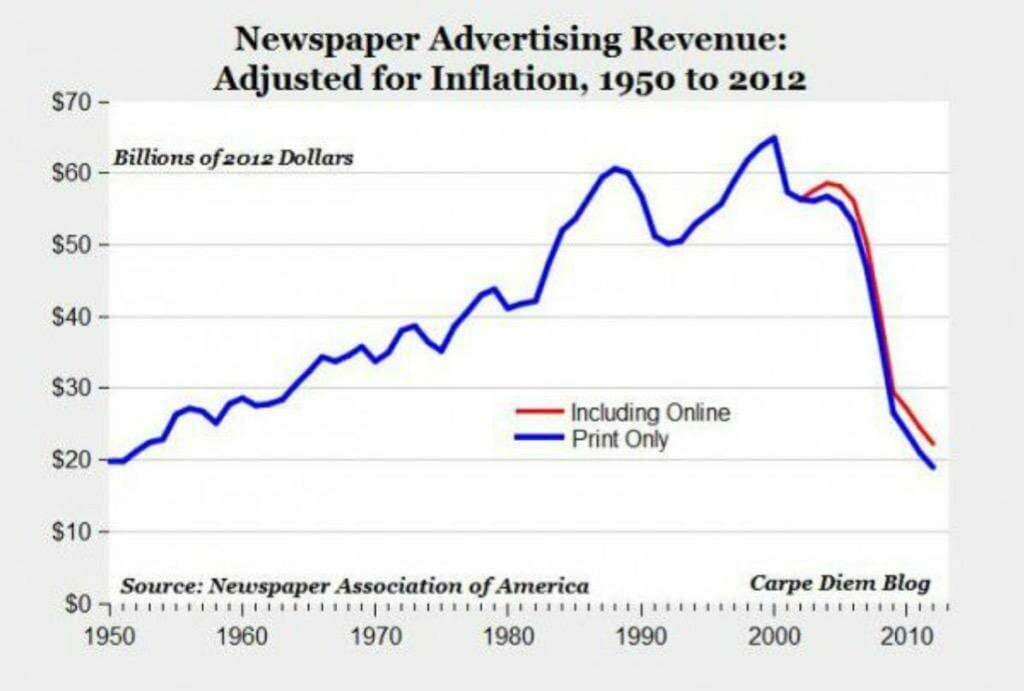
The only thing dying faster than ad revenue is your iPhone battery.
Seriously though, when was the last time you clicked on an ad that wasn’t on Google, Instagram, or Facebook? Exactly.
Building a business based on ad revenue (like Google AdSense) is like building the house of your dreams on a shit sandwich. It makes about as much sense as that analogy. But, don’t take my word for it, let’s do some quick math.
Online income can be described by CPM, a term typically used in advertising. It’s a number that describes how much money you earn per 1,000 visitors. An average Display Ad CPM is $1.28. That means you will earn $1.28 for every thousand views of that terrible ad you’re displaying.
However, this shitty listicle that I referenced earlier is earning over $68 per thousand visits. I risk blowing it up drawing attention to it but it’s all to make a larger point. Is there ever a time that you think you’d take door #1 and go with classic ads at $1.28 per thousand visits vs $68 per thousand visits? I certainly hope not because if you say yes then I’ve got something I’d like to sell you.
Honestly, I don’t care how high your CPM rate is, a blog that doesn’t suck monetized with affiliate income will whip display ad sites every day of the week. In case you didn’t get it, my shitty listicle earns 68 times more money with affiliate products than it would with display ads. Imagine taking your yearly salary and multiplying it by 68. I think we can agree that’s a lot of money.
Focusing on display ads is like bending down to pick up a penny when someone is trying to offer you a dollar.
But Andrew, how will I monetize my article “How to Write a Check?” Easy, delete that and don’t create stupid articles that add almost zero value to humanity. Head back to the top of this article and start over. Do not collect $200, collect $1.28.
Don’t argue with me or email me about it because I don’t care. You can have your ads and if you have some super wicked way to turn $1.28 into $8.47, that’s awesome. Good for you. I’m going to focus on the larger prize, not selling page views.
Who wants to fight Instagram for ad dollars anyways? Also, have you heard of ad blockers? No? Neither have I or the other 30% of the internet. Keep calm and carry on.
Your Creation Strategy
There was once this guy and he said, “build it and they will come.” Not only was he dead wrong but his poor attempt at being insightful has been misleading people for years. I hate that guy.
First, I built Joymonger, a gift card trading website. Nobody came. Then I built Code Drink, a custom web development agency and nobody came. After a few more failures I built Listen Money Matters and it took the better part of a year before anyone came.
As it turns out, there are a few subtle tricks that I had to learn the hard way.
Create Epic Shit (that people actually want)
A few months into building this site I found ThinkTraffic.net which was eventually renamed and rebuilt from the ground up as Fizzle.co.
It absolutely changed my life – specifically Corbett Barr did. He wrote this article called Create Epic Shit and it blew my mind. It’s obvious, oh so obvious that still, nobody does it. It’s actually kinda sad.
Building a business? You need to start here. Get educated on business in an ultra-high quality setting that's damn cheap. Oh, and you'll also get to meet a ton of awesome entrepreneurs who actually want to help.
Listen Money Matters only started to take off as a result of my time in Fizzle and I'm sure both Thomas and Matt would say the same.
Essentially he says that in order to get found, make an impact, and eventually earn a decent living, you need to create insanely awesome things.
Great, high-quality content that humans actually want to read. Like go, look at what is out there and create something 5x better than what everyone else has.
Articles like the one you are reading now and many across the internet directly result from Corbett telling us what we should have already known.
The internet is an arms race, I’m trying to make a living, Corbett is trying to make a living, and I’m guessing so are you and a couple billion other people.
You’re not going to win with B- shit, you need to shoot for an A+
You didn’t find this website by accident, it was by design. I built something insanely useful and Google is in the business of getting you to the best stuff that exists in the shortest amount of time possible. Great content always wins.
I didn’t hack Google, I’m just the only fool willing to spend 8 days writing an article that takes you 15 minutes to read. I’m sorry but hard work has always been the answer. Your dad was right.
Which leads me to a huge ax I have to grind.
SEO isn’t all it’s cracked up to be
The only thing less hot-garbage than SEO is, actually, I can’t think of anything. It’s a huge self-perpetuating scam that maybe “worked” in 1995 and even then was a poor idea.
To initiate you, in case you don’t know, SEO or Search Engine Optimization is the practice of making a mountain of tweaks and setting up a bunch of Google hacks to get you “traffic”.
It’s classic self-help at its finest. Pay me three easy payments of $49.95 and one hard payment of $900 and I’ll share all of my secrets, hack Google for you and most critically, I’ll allow you to substitute your money for good ol’ fashioned hard work.
If you want to buy away all of your life’s problems there will absolutely be someone there ready and willing to take your money. I’ve fallen into this trap roughly a million times and I probably would have been better off burning my money to stay warm.
As it turns out, Google is in the business of getting you the best information as quickly as possible. You can fool them once, twice, maybe even consistently for three years but guess what, they’re coming for you and internet justice is swift.
If you’re found trying to cheat, they won’t just ask you to stop when they catch you, they will decimate your business such that any real effort you put in after that will be for nothing. The stories aren’t hard to find because cheaters cry hard and loud. They are always sorry – sorry they got caught.
Also, there is no “traffic”, only people. Living, breathing people who have a problem and are looking for an answer.
Until you realize these are people and not resources in Starcraft than you’ll never be able to make real things that real people want.
Fine, but how do you know what people want?
Data rules the world around you
Before I became a full-time blogger I actually had a respectable career. I was a Data Engineer and I did a lot of cool stuff that nobody ever understood.
At parties, people would ask me what I did and I quickly found out that the best way to not make friends was to answer their question. I “did Big Data things” which is summed up best by Dan Ariely:
“Big data is like teenage sex: everyone talks about it, nobody really knows how to do it, everyone thinks everyone else is doing it, so everyone claims they are doing it…”
But, there is some value in this Big Data thing, beyond getting a paycheck for doing things no one understands. You can draw some pretty incredible insights from it. Because, as it turns out, you’re not a special snowflake. There’s actually very little special about you because even when you’re illogical you’re actually being perfectly logical for a human.
How does Spotify know what music to suggest? They harvest mountains of listener history and essentially find patterns. Facebook makes billions a year by reducing your humanity to a set of data points that they sell to the highest bidder.
So, how do you harvest the “big data” of the internet and discover wtf people are actually looking for? It’s easy, Ahrefs. To say my businesses are absolutely reliant on that tool would be the understatement of the year. The only travesty of it is that they won’t pay me any money to tell you about it. They’re that amazing.
In all seriousness, this tool is what will save you years of your life and help guide your blogging approach. It’s expensive so let’s game the system.
They have a 7-day free trial. So, do a ton of planning. Then, call your mom, catch a movie and signup for the Ahrefs trial. Do nothing but find every competitor and keyword. Don’t even go outside.
When you’re done, cancel your account.
In other unrelated news, who knew that if you add + to the end of a Gmail account you can create an email alias. [email protected], [email protected], [email protected]. Do you see that? Looks like 3 free weeks to me.
That said, you should probably get Ahrefs before you buy any of the other 1,000 stupid things you think your business needs to succeed.
When you make money, you can pay for Ahrefs because seriously, creating an Ahrefs account every week is insane.
A Blog’s Growth Trajectory
It’s going to take you between 3 to 5 years to find success, anyone who says otherwise is an asshole. I’m also an asshole, I’m just not going to lie to you. This isn’t some get rich quick scheme. You absolutely can make a ton of money AND reclaim your time from your day job but you’re just gonna have to work for it.
You should expect to put in a solid 10 to 20 hours a week of actual meaningful work. That means writing, researching and anything that goes towards creating.
Reading other websites, tweaking your website theme, commenting on blogs, email, vision boards, all a waste of your time in the first year. You’re going to do it anyways but those hours will not get you any closer to your ultimate goal. Meaningful recurring passive income.
I honestly wasted a metric ton of time on stupid stuff and looking back I maybe put 10 hours towards creating a week. If you can create decent quality things consistently you’ll be more than fine. This isn’t the Olympics, it’s blogging.
If you sign up for WP Engine, and I strongly suggest you do, that will cost you $350 a year with the annual pricing discount. Only schlubs pay full price ($420) and honestly, if you’re not sure that you’re going to stick with blogging, don’t even pay for one month of hosting. Why waste any time or money? Plan to win or go home. I’m not special, I just didn’t give up.
Beyond hosting you shouldn’t spend more than $100 in your first year on miscellaneous stuff like a theme. Without spending meaningful money and only putting in a few hours a week, I think you can earn more than $1,000 in your first year. We recently created a rather simple list-based site that earned over $1,00/month after roughly 8 months.
Again, we’re not special, just focused and try extra hard not to waste time.
Appropriate Expectations – Adult Edition
This is what the first roughly 5 years of traffic look like for Listen Money Matters. I attempted to break it into four sections to illustrate a point:
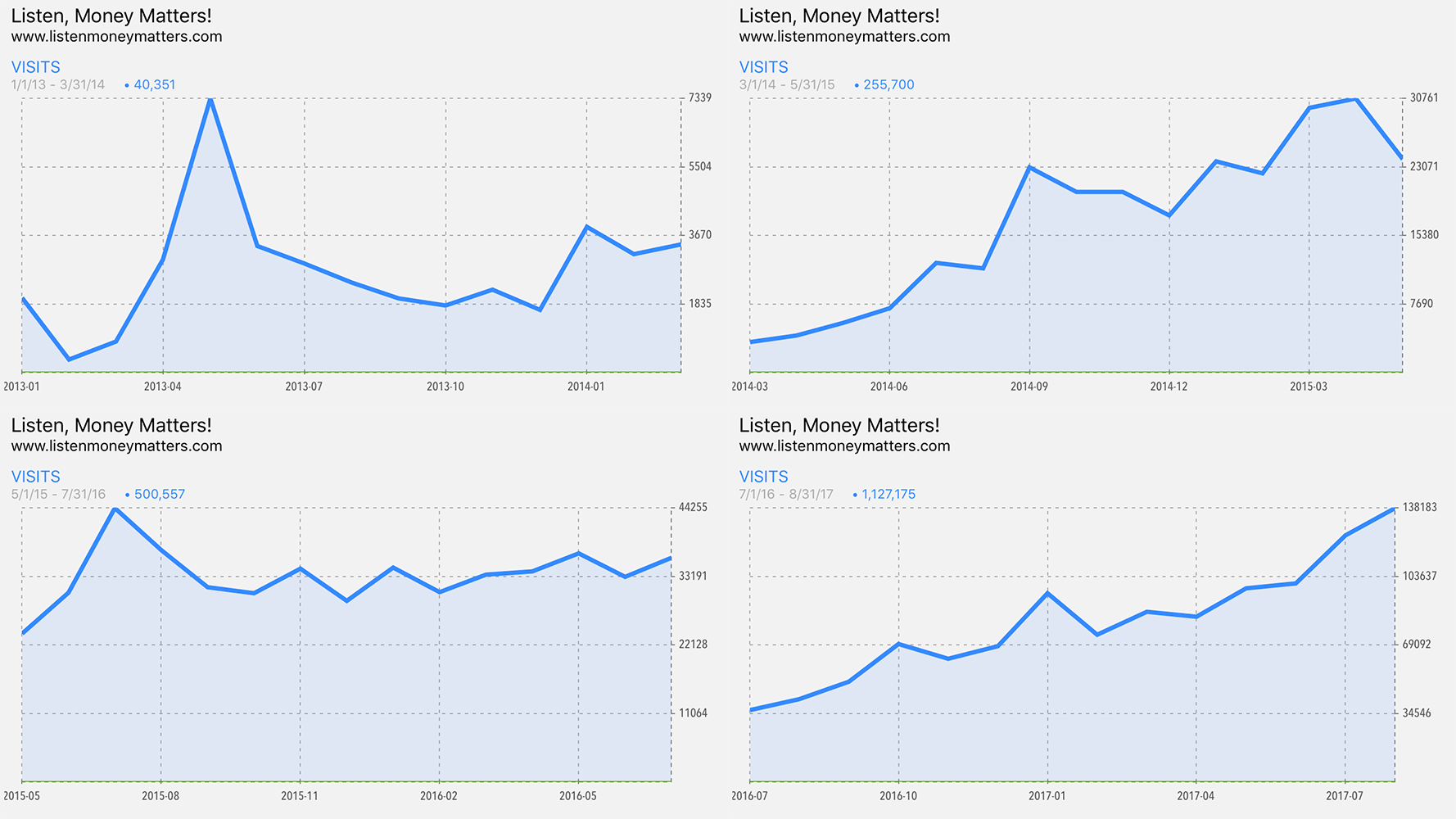
First Quarter: Spent most of the first year at traffic levels that were either 0, down or flat. Was rough.
I don’t know how many hours a week I put into the site but I wouldn’t be surprised it if averaged to 40 or more hours a week between evening hours, commuting hours and the majority of weekends. I’d also be up all hours of the night trying to squeeze in more work.
Income made? I lost over $5,500. My hourly rate? Roughly lost $3 every hour I worked. Time spent on actually creating? Unfortunately very little until the end of the first year.
Lesson Learned? Don’t spend money on stupid things when your business isn’t earning and focus on the hard work first like creating, ignore tweaking the website.
Second Quarter: Growth was so strong it was intoxicating. I pulled in Matt Giovanisci to help at a low point in his life. Who else would jump into an endeavor that’s vomiting cash? We started a podcast and it was pretty damn awesome.
The site went from roughly 40k visits in 15 months to 255k visits in nearly as many months. Matt was poor as shit so the little income we made went to him and I covered costs.
Income made? About $8,900 which, after my initial losses was only about $3,000 in income over 14 months or $214 a month. That puts nearly two hardcore years of effort at probably $1 an hour or less. I probably worked even harder during this phase. The difference is that actual meaningful things were being created. Finally, the business was being built.
I had a work from home day I scored from my day job and I spent a lot of that time on this site. I don’t believe anyone thought I was actually doing work for my job when I was at home. And if they did, sorry not sorry.
It’s no wonder most businesses fail, you really have to be an idiot to work years, make no money and withstand everyone around you reminding you how dumb you truly are. In hindsight, I’m thankful for being that stubborn idiot. I also dreamed about quitting my job this year which didn’t help everyone’s perception of my mental state.
Lesson Learned? Should have monetized sooner and spent more time actually creating new things which was farrr more lucrative than adjusting the font of the website. Who knew?
Third Quarter: I broke up with Matt and took over his workload, upped my workload and jumped way off the deep end. I decided to redesign the entire site. I was insane. Somehow the site grew but every month was a struggle.
Thomas became the new co-host of the show and both kept me from going insane and took $0 from the business. Clearly, Thomas was crazy which further reminded me that only crazy people start businesses.
I put a monstrous amount of focus on income and somehow we earned a little over $40,000. In there, my wife quit her job to help and reduce my workload. Since she stopped making her income and we were investing everything we made back into the business, we still were pretty low on the hourly rate scale. There was a lot of talk about giving up here, things grew but slowly.
This quote got me through, and it is still the truest most awesome thing I have ever read. It was the fuel to my fire:
Entrepreneurship is living a few years of your life like most people won’t, so that you can spend the rest of your life like most people can’t.
I’d also attended conferences and let everyone know I was crushing it. I’d listen to the keynote speakers at those conferences and cry, literally. I was a mess.
Lesson Learned? Do less things, focus is all that matters. With a little help I think we coulda pulled this off in one year if I didn’t meander all over the place and pick up/drop a ton of random projects. It’s at this point things started to compound.
Fourth Quarter: The website and podcast just grew like a weed. After meeting and talking with a bunch of other website owners, year 2-4 is typically where things start to take off. Woo!
People were emailing us asking to give us money. Sponsorships, new affiliate opportunities, we even had fans! Some days it took all my strength just to fit my ego through the front door. That also made it an insanely dangerous time as hubris has always lead me to failure. Thankfully my lovely wife helped keep my head on straight.
Things got much much easier here. We started to grow a team, do less of the work we didn’t like and put systems in place so that the business would run and grow without us.
We made roughly $283,000 in that quarter, more than double what we had earned in the prior quarter.
Lesson Learned? Setup processes early and often, the only way you can do more is if you reduce the time you spend on your work. We started to understand scale here, once you hit a certain size everything generally just moves up and to the right.
Addendum Quarter 5: I wrote the above part roughly a year ago so it’s kinda nice to look back and reflect. Things have gotten even easier and less urgent.
Turns out, the only rush is to hit scale, then things kinda start to take care of themselves. There is still work, and stress, but it’s mostly to push towards new goals, not survival.
Every year for the past three years the website’s size and revenue have at least doubled. This year it looks like it will do it again.
Lesson Learned? Double down on what works. Do as few projects as possible and focus on making sure nothing is urgent. Technically this is year 6 for us and we’re focusing on removing even more time commitments so we can live the life we want. I want a Lifestyle Business, not a Business Lifestyle.
How You Will Fail
Did you know that after five years, 50% of businesses will have failed and that number jumps to 70% in 10 years?
There are probably millions of reasons businesses fail but the bulk of the non-money-related failures can fall into four categories. I’ve been supremely lucky to have failed at each of these yet I attribute my intense stubbornness to why we did eventually succeed.
1. The Equal-Odds Rule
I was first introduced to this concept by my good friend Thomas. His video on the Equal-Odds Rule is awesome and I highly recommend you watch it.
It says two important things:
- When you start you’re going to suuuccckkk. Badly. After a year you’ll probably delete your first blog post. However, you’re creating things because you have great taste and ideas on how to do things better. You need to create lots of things in order to practice, get better and eventually create things that match your level of taste – things you’re proud of. Your first creations will be bad, get over it and keep releasing things out into the world. My first article – bad; my first podcast episode – also bad. Guess what, it doesn’t matter.
- People who create things with the most impact, also create things with the least impact. The act of creating things with incredible impact is more a factor of “trying enough times” as compared to actual insane talent. Basically, 65% of what you create will probably never be seen, 25% will be decently successful and 10% will be wildly successful. In order to create things that are wildly successful, you’re just going to have to create a lot of things. So, if a profitable blog post is like a beautiful tree, in order to grow that beautiful tree, you’re going to need to plant a lot of seeds.
So, what did we learn?
Create lots of things and fearlessly release them into the world.
2. Building a Bridge to Nowhere
You know what would be cool? A bridge from Alaska to Russia over the Bering Strait. It was even proposed at one point and Russia said they would contribute $65 billion towards the completion of the 25-mile bridge. It’s no surprise it wasn’t built, it’s a stupid idea.
The area where the bridge would need to be built would connect the most remote part of Alaska with the most remote part of Russia. Either side of the proposed bridge is many hundreds of miles away from where people actually live. It would be a literal, actual, bridge to nowhere. And, when completed, it wouldn’t have any real use. How’s that for an on-the-nose metaphor?
If this sounds dumb (and it is), you should feel the same about blog posts that are written on subjects nobody wants to read about or podcast episodes in languages nobody speaks. If a tree falls in a forest and no one is around to hear, does it even make a sound?
Everything you create needs to be rooted in research.
Do people want to know how to domesticate a moose? No? Then don’t create it.
Want to know what people are looking for? Use Ahrefs. They are the bee’s knees of internet research.
Fun fact: As per Ahrefs, over 80,000 people search “how to create a blog” every month – hence why I created this article.
Do you know how many people search “how to domesticate a moose”? 250 every month, on average. Cool. I’m skipping that one.
3. The War of Attrition
If you’ve met me in person and asked for my opinions on growing a business then you’ve certainly heard me mention “The War of Attrition”. I’m obsessed.
The internet is filled with narcissists that think they are “God’s gift to <platform here>” – Instagram, YouTube, Google, you get the idea. Now, I certainly have my intense moments of narcissism but I’m also not that blind to realize that I am not special. Not only am I not special, you aren’t either. So sorry to contradict your Mom like that.
We’ve certainly done some awesome things at Listen Money Matters but by far the most awesome thing we’ve done is not give up. A million improvements on a business over three months is a lot, over a year is impressive and over five is simply massive. I attribute an enormous amount of Listen Money Matter’s success to the fact that we’ve continued to exist, make a ton of mistakes and in some cases, improve.
There certainly are plenty of ultra-average people who’ve made butt-loads of money on stupid ideas (yes, the Snuggie has made over $500 million, be mad). The idea of the Snuggie is objectively dumb but after learning how much money they made I gained a lot of respect for the creator and the team behind it. Their results are pretty damn impressive, they clearly won the war.
These are some of the battles you’ll encounter in the War of Attrition:
- Nobody will believe in you or your idea. In fact, they will actively work towards getting you to stop. It takes a special type of crazy-person to create something through sheer force of will, and few will understand that. Creating your own business challenge’s their decision to work for someone else, something they’ve probably dedicated a significant amount of time towards. If you succeed that may cause them to question their whole life, and nobody wants that.
- You give up. When the going gets tough, the tough take it on the chin and push forward. There will be brick walls in your way. If you can’t go around the wall, sometimes you’ll need to go right through it. You’ve gotta be gritty as hell.
- Burnout. This is such an important, real issue, that we’ve both written and podcasted on it. Most entrepreneurs will openly acknowledge this is one of the most challenging aspects of starting a business – mental health. Business is a marathon, not a sprint. 10 hours a week will get you there, 20 hours, even 40 but 100 hours a week will get you a bed in a mental institution.
- Many things you do will be copied. If you’re a few years in and people haven’t shamelessly copied you, then you should be worried. However, if people are copying you, then your future customers may experience them first so you need to constantly improve and evolve to set yourself apart. You need to be your own biggest competition.
- Spending more than you earn. If you make $100/month, then you can only spend $100. This discipline is incredibly important. If you aren’t disciplined, then you’ll let it all get away from you. As you earn more, spending creep becomes a real, dangerous problem.
4. It’s called focus, stupid.
It took me almost a year of starting and stopping this article because my focus sucks. However, my focus is still worlds better than yours – Listen Money Matters is proof of that. Anything that is worth the admiration of others will take a lot of time to make and a collection of work beats any single creation.
Remember that picture you drew for your mom that she put on her fridge? She was being nice, it was terrible. Piccaso didn’t paint a few paintings or make a few sculptures; it’s estimated that he made roughly 50,000 pieces of art. If you just choked on your spit, it’s for a good reason, that’s an insanely large number. Also, probably the number of creations necessary to be noticed before the internet was created.
Luckily the internet has made things much easier, the Listen Money Matters website and podcast combined is only 755 creations large and a huge amount of it wasn’t even done by me. The internet has made things easier, but that doesn’t mean you can go ahead and work on 15 projects at the same time.
Trying to build multiple things in tandem is like trying to toast bread with a flashlight. Perhaps it can be done, but it certainly won’t be easy. This doesn’t mean you need to forsake all things in your life for a single project, but it does mean you should always have fewer projects than you think you can handle.
TLDR; Takeaways
Because you’re important, here is the executive summary:
- You should use WordPress as your platform (WordPress.org, not WordPress.com). Any other choice is honestly ridiculous. Don’t email me if you choose something else; I don’t care, that’s a problem you can deal with by yourself. WordPress problems? As of 2018, WordPress accounts for over 59.9% of the online CMS space. Squarespace? 2.4%. Ew.
- Hosting is a critical first decision. Our recommendation is WP Engine but if you’re looking for something shockingly cheap, go with HostGator. Of course, you get what you pay for. If you save $20/month and it costs you three additional hours of work to manage every month, you probably aren’t saving money (time is money). For what it’s worth, Bluehost offers a free domain with purchase so that will save you $9. Woo, chase those pennies!
- Every site name and topic are a good choice. Few if any people will type in your domain name so don’t sweat it. Most people will reach you through Google, Social Media or Bookmarks. When it comes to the topic you discuss, on the internet there is enough interest to sustain a site on any topic as long as you remain focused. Focus!
- Your theme is a distraction when nobody is visiting your site. Use a free WordPress theme or find a cheap one at Themeforrest. Spend time creating, not tweaking unimportant details.
- Create your social media accounts and then promptly ignore them. These will only really become important later – first as a way to contact other creators and eventually as a way for your audience to connect with you. Time on social media is a waste before you’ve created anything.
- Monetize your website from day one. You won’t make money later if you don’t plan for it now. Also, ads are bullshit, and everyone hates them so pick a different business model.
- Create intelligently. Don’t make things people aren’t looking for and don’t want. Sounds obvious but it’s difficult in practice. Thankfully, there are awesome tools that exist to help you with research (Ahrefs).
- Understand how you will fail so you can plan for it. Success with creating a successful website or blog is more about avoiding major pitfalls and remaining consistent than some magic formula. You will get better over time if you allow yourself to. The best way to fail and keep your shitty day job is to give up, so don’t.
Frequently Asked Questions
How much does a blog cost?
Typically somewhere between $3 and $30 a month depending on what you want and think is important. If you’re like me and you think quality matters then you’re going to choose WP Engine. Good news is I’ve cut a deal with them and they’ll shave off 20% and then two months if you signup via any of our links. You’re welcome.
What if I can’t decide on a blog topic?
Don’t worry; all is not lost. Just start, and you can always evolve your blog or concept down the road. Honestly, few if any successful bloggers became successful with their initial topic/formula. You just need to start creating, and you will learn what works, and get better.
What if the domain name I want isn’t available?
Don’t worry, both WP Engine and HostGator let you start blogging without a domain name if you choose to. This way you can start creating. Honestly, for the first few months, nobody is going to visit your website, so it isn’t mission-critical to start with a domain. Don’t let finding a blog name stop you from getting your new blog set up. Just. Get. Started.
How do I get people to visit my blog or website?
As we discussed in Your Creation Strategy, you need to do research on what people are looking for and then create answers/solutions to them. It’s Google’s business to bring people to the best answers to their questions so after you find out what people are asking; you need to create an epic answer. As unsatisfying as it is, the actual key to getting people to visit your website is to create awesome stuff around things they are interested in. The hardest part is the awesome part.
How can I make money blogging?
You should probably read the How to Monetize Your Blog section.
How much money can you make from blogging?
This WordPress blog makes hundreds of thousands of dollars a year, and so do the websites of the people I mentioned in this post. I’ve spoken on the podcast about how I strongly believe with one year of part-time focus (10 hours/week), you can grow a website to $1,000/month passively. My wife and I have done this multiple times using very different business models. We are not special, just focused.
Which blogging platform should I pick?
Not to beat a dead horse but you should go with a WordPress blog. There are other blogging platforms that have a lot of fancy smancy features, but in order to grow and scale a website, you need much more than you do on day one. WordPress as a blogging platform supports over 27% of the world’s websites and has a developer community second to none. If you need it, WordPress has it, ’nuff said.
Should I run a self-hosted WordPress blog?
Hell. No. I’m a tech guy, and I did this to start – I find AWS fun. Everything was great until my site started getting attacked, and then things needed to be patched, and eventually, I was struggling to keep it online every month. For virtually nothing a month, someone else can deal with those problems. Trust me; you don’t want to install WordPress, set up the database, figure out HTTP vs. HTTPS, etc… Just skip all to step 4 and get started now.
Are there any websites where I can create a free blog?
Yes: Blogger, WordPress.com, Tumblr, Wix, and the list goes on… If you want to make meaningful money on a site that isn’t a pain to grow/scale, I wouldn’t recommend it. Starting a blog already is work, moving hosting companies is a metric ton of work. Switching platforms? Crazy.
Is it OK to just create a personal blog or website instead of a business?
Absolutely, I’d even wager that most successful blogs start that way. I set out to create a business but few if any people did, I know my good friend Thomas didn’t. What’s important is that you go, log into your wp-admin, click new post and start writing. Your Mom was right; the hardest part is getting started.
Are there any add-ons or plugins that I should get?
Plugins, add-ons, and themes are the lifeblood of the WordPress platform. These are the ones I use for Listen Money Matters, and I’ll add new ones in when we use them:
- Admin Bar Disabler – So the WordPress Dashboard Admin bar doesn’t get cached with Cloudflare.
- Autoptimize – Condensing/Obfuscating resources provides some site speed improvements.
- Better Search Replace Pro – Making broad sweeping content fixes easily (there is a free version).
- Blubrry PowerPress – Podcast feed handling.
- Categories Images – Allowing an image to be associated with a category.
- Cimy User Extra Fields – Supports additional non-default fields on team pages.
- Cloudflare – Allows the cache on individual posts/pages to be cleared when updated.
- Custom Related Posts – Manages the related posts DB/UI.
- DB Tables Import/Export – Data control/backup utility
- Disable XML-RPC – Locking down the most vulnerable component of WordPress.
- Display PHP Version – Name says it all, for debugging help.
- Edit Author Slug – Allow team pages to have slugs that differ from their username.
- Email Login – Can log into the WordPress Dashboard with email as well
- EWWW Image Optimizer Cloud – Optimizes images, WebP support, all-around awesome.
- Google Tag Manager for WordPress – Implements Google Tag Manager which can manage Google Analytics, Google Optimize and a bunch of other awesome stuff for you.
- Lasso – Monetizes your website and tracks your links. We built it, and it’s how we monetize this website.
- Post List Featured Image – Featured image support for posts/pages on the list page.
- Publish to Apple News – Sends all new blog posts and their changes to Apple News.
- Redirection – Handles all URL changes and provides a sweet 404 log.
- Relevanssi – Improves search internally and on the public site.
- Simple History – Internal WordPress audit trail so nobody on the team can make an unknowable mistake.
- Slash Edit – Allows “/edit” at the end of every URL to redirect to the edit page. Improves my life 1,000%
- Social Warfare (Pro) – Beautiful social share buttons and tracking.
- TablePress – Handles all site tables.
- Theme Test Drive – Ability to view other themes on live site.
- WordPress Editorial Calendar – Puts all publish/scheduled post dates on a calendar.
- WP Crontrol – Visibility into WP Cron and the ability to make ad-hoc changes.
- WP Missed Schedule – Ensures that scheduled posts go live on time.
- WP-DraftsForFriends – Share unpublished work to be viewed without being logged in.
- Yoast SEO Premium – All things SEO. YOU NEED THIS!

